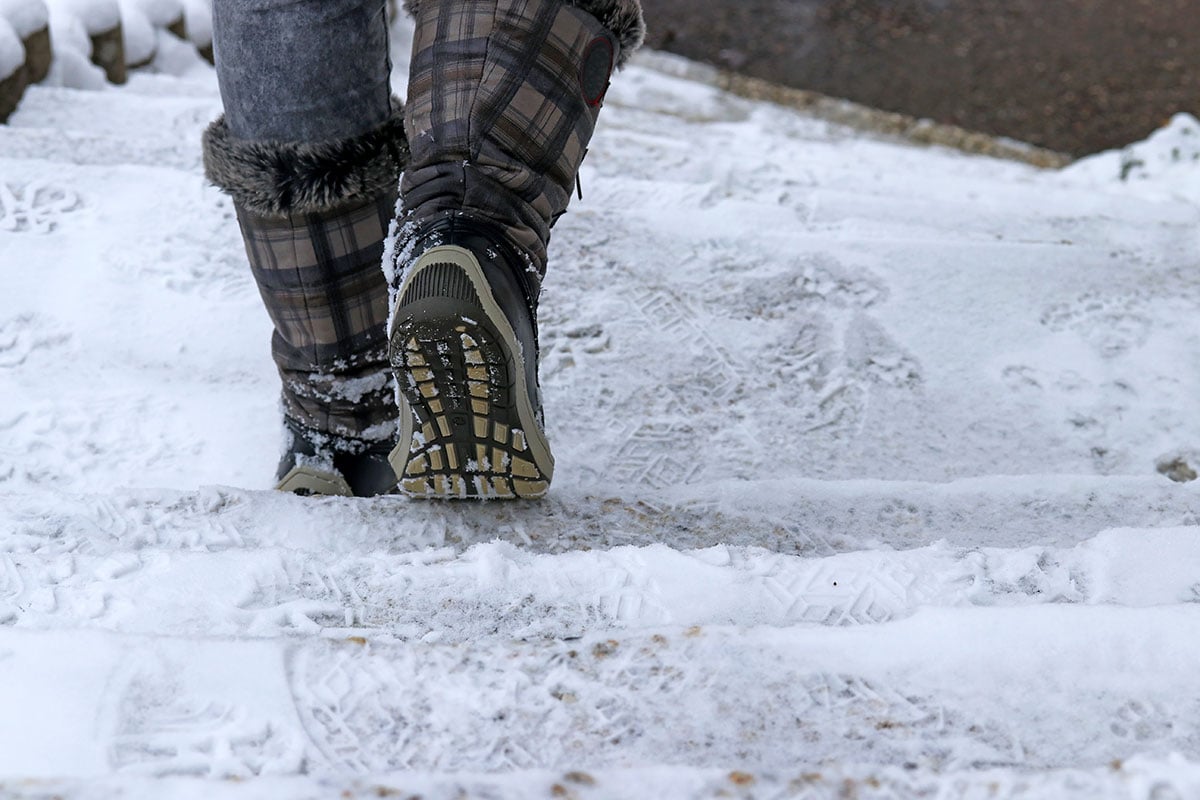Each year, slip and fall accidents send 8.6 million people to the emergency room – that's roughly the population of New York City. During winter months, the chances of falling increase as snow and ice make their way to busy sidewalks, stairs, and driveways. As a property manager, your job is to keep tenants and pedestrians safe by keeping properties clear of snow and ice hazards.
Take a look at these five ways to help prevent slip and falls and keep tenants safe this winter, and learn how TaskEasy by WorkWave can help.

Regularly clean rain gutters
Regularly cleaning and inspecting rain gutters can help ensure rainwater is collected and dispersed safely on the ground. If ignored, rain gutters can clog with debris, causing water to overflow and freeze onto sidewalks and driveways.
For more information about gutter maintenance read our post, What Do Rain Gutter’s Do?
Pretreat surfaces with de-icer
Light snowfall can cause concrete surfaces to transform into dangerous slipping hazards. Spreading a light application of ice melt at the beginning of a snowstorm can temporarily keep surfaces clear of snow and ice and prevent falls.
Remove snow and ice promptly
Residential neighborhoods and commercial properties need to be accessible to everyone year-round. Most cities have snow ordinances that require property owners to clear snow and ice from public areas. These ordinances prevent slip and fall accidents by keeping sidewalks accessible to people, so they can walk in safety and away from traffic.
Promptly clearing snow and ice from your public areas such as sidewalks, walkways, driveways, stairs, etc. prevents snow from being packed down and hardening into an icy mess. We've all come across a property where snow hasn't been cleared and we're forced to either trudge through the snow or walk in the street to avoid it. That's not only an inconvenience, but it's also unsafe. Don't make your properties be one of those properties.
In Chicago, property owners are required to clear snow and ice from public areas immediately following a snowstorm. Failure to remove snow can result in a fine up to $500 per day. Clearing snow promptly not only creates a safe environment for your tenants but prevents costly fines and added costs to remove old packed-down snow and ice.
Apply post-storm ice melt
After clearing areas of snow and ice, there may be some residual ice leftover that can be treated with ice melt. Applying ice melt will help ensure surface areas stay clear of ice following snow removal.
Use sand for traction
Once the snowstorm is over and the majority of surfaces are cleared of snow and ice, you can begin applying a thin layer of sand to provide added traction to potentially slippery surfaces. Sand is an excellent alternative to rock salt for providing traction as it doesn't melt and continues working at even the coldest temperatures. However, too much sand can build up and harden if not cleaned up after each storm.
Need help with snow removal? TaskEasy specializes in providing snow and ice services for vacant residential and commercial properties on a nationwide scale.





Let Us Know What You Thought about this Post.
Leave a comment below.